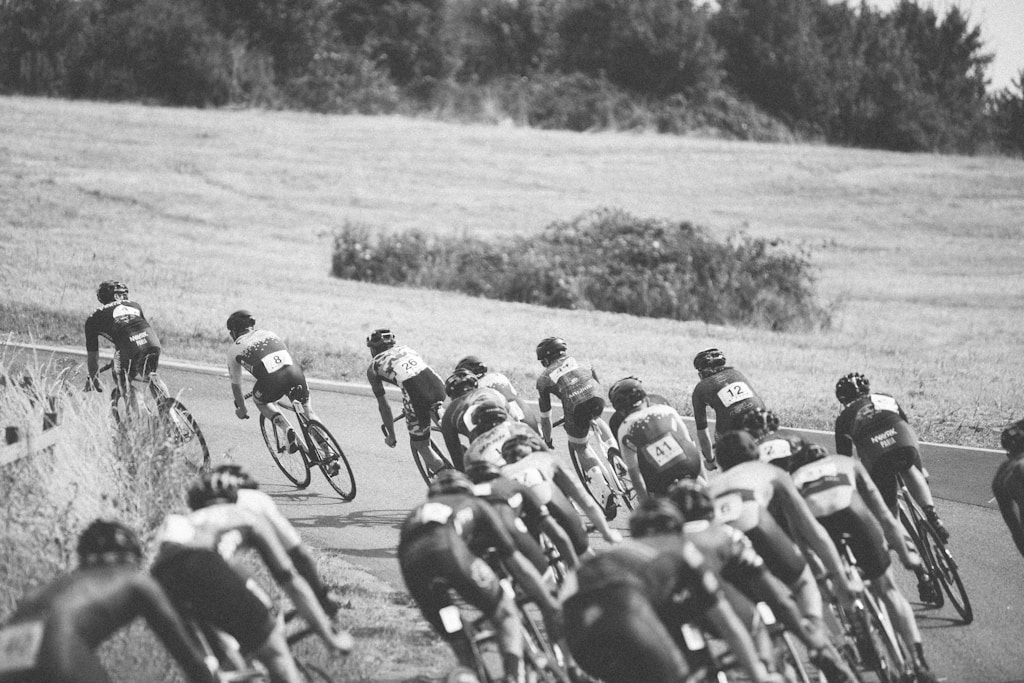Participating in Bike Marathons
Participating in Bike Marathons
Bike marathons has gotten complicated with all the misinformation and hype flying around. As someone who has lined up at the start of more than a dozen of these things over the years, I learned everything there is to know about racing long distances on two wheels. Today, I will share it all with you.
Look, the first time I signed up for a bike marathon, I had absolutely no clue what I was getting into. I figured — hey, I ride my bike a lot, how hard can it be? Turns out, pretty hard. But that’s also what hooked me. There’s something raw about pushing yourself over 50, 80, or 100 miles that nothing else in cycling quite replicates.

Choosing the Right Bike Marathon
Probably should have led with this section, honestly. Before you pay the entry fee and start telling everyone you know you’re doing a marathon, take a step back. What kind of marathon are we talking about? Road race? Gravel grinder? Full-on mountain trail suffering? These are very different beasts.
Distance matters a lot, obviously. Some events are a relatively chill 20 miles, others push past the century mark. Be realistic about where you are fitness-wise. I made the mistake of jumping into a 100-miler my second year and bonked so hard at mile 70 I wanted to throw my bike into a ditch. Don’t be me.
Research the actual course. Pull up the elevation profile. Look at the weather history for that time of year. A flat 60-miler in mild October weather is a completely different animal than a hilly 60-miler in August heat. Those details change your equipment choices, your pacing, everything.
Training for a Bike Marathon
Here’s what nobody tells you early enough: consistency beats intensity every single time. You don’t need to destroy yourself on the bike five days a week. What you need is a steady routine that slowly ramps up. I’m talking weeks and months, not days.
Long rides are your bread and butter for building endurance. But don’t skip the shorter, punchier sessions either — intervals, hill repeats, tempo work. Those build the kind of strength that carries you through the last 20 miles when your legs are screaming.
Recovery is where the magic actually happens though. Your muscles don’t get stronger while you’re riding. They get stronger while you’re sleeping and resting. I used to skip rest days because I felt guilty. All that got me was a knee injury that sidelined me for six weeks. Stretch regularly. Seriously, do some yoga or Pilates. Your hips and hamstrings will thank you.
Nutrition during training is its own thing. Carbs are your fuel for long rides. Protein helps rebuild muscle. And hydration — drink water throughout the day, not just when you’re on the bike. By the time you feel thirsty on a ride, you’re already behind.
Essential Gear and Equipment
Your bike is obviously the centerpiece. Get it tuned up properly before you start serious training. A creaky bottom bracket or a slightly off derailleur will drive you insane over 80 miles. Check tire pressure before every ride — it makes more difference than people think.
Always, always carry a repair kit. Tire levers, patches, a mini pump, a multi-tool. I’ve seen riders stranded on the side of the road 30 miles from nowhere because they didn’t pack a spare tube. Don’t be that person.
Helmet is non-negotiable. Beyond that, invest in decent cycling shorts with real padding. Your sit bones will send you a thank-you card. Good gloves reduce hand numbness on long rides. Sunglasses keep wind, bugs, and sun out of your eyes. And a bike computer or GPS? Super helpful for tracking distance, speed, and making sure you don’t miss a turn on an unfamiliar course.
Nutrition and Hydration on Race Day
Eat a solid meal about 2-3 hours before the start. Carbs and some protein, nothing greasy or heavy. I usually go with oatmeal, a banana, and peanut butter. Works every time.
During the race, you need to eat before you’re hungry. Energy bars, gels, bananas — whatever sits well in your stomach. Some people swear by gels, personally I find them disgusting after mile 40. Real food like fig bars or rice cakes work better for me on the longer events.
Hydration is similar — drink small amounts regularly, don’t wait until you’re parched. Know where the aid stations are on the course and plan your bottle refills around them. Mix in electrolyte drinks, not just plain water, especially if it’s hot out.
After you finish, eat something with both carbs and protein within about an hour. Chocolate milk is actually fantastic for this. Helps with recovery and cuts down on that brutal next-day soreness.
Race Day Strategies
Get there early. Like, annoyingly early. You want time to set up, check your bike one last time, use the bathroom (probably twice), and do a short warm-up. Rushing to the start line is a terrible way to begin.
Study the course map if you haven’t already. Know where the climbs are, where the technical bits are, where you might need to conserve energy. Then pace yourself. I can’t stress this enough. The adrenaline at the start will make you want to fly. Resist that urge. Starting too fast is the number one mistake I see, and I’ve made it myself more times than I’d like to admit.
Drafting behind other riders saves a shocking amount of energy. Tuck in behind someone riding your pace and let them break the wind. Just be courteous about it and take your pulls at the front too.
Stay mentally flexible. Your legs might feel great or they might feel terrible. Weather might shift. Plans change. Roll with it and enjoy the ride. That’s what makes bike marathons endearing to us cycling junkies — it’s never the same experience twice, and the unexpected stuff makes the best stories afterward.
Common Challenges and How to Deal With Them
Weather will mess with you at some point. Rain, wind, heat — train in all of it so race day doesn’t catch you off guard. I once rode a century in sideways rain and honestly it was one of my favorite races ever. Miserable in the best way.
Flat tires happen. Practice changing one until you can do it in under five minutes without thinking. During a race, fumbling with a tube while other riders fly past is demoralizing.
Cramps are usually a hydration or pacing problem. If you’ve been drinking and eating properly, they’re less likely. But if one hits, ease off the intensity, stretch if you can, and ride through it gently.
Mental fatigue is the real boss battle in long events. When your legs are toast and there’s still 25 miles to go, your brain starts bargaining. Break it into chunks. Just get to the next aid station. Just get to that tree up ahead. Have a phrase or a song or whatever gets you through the dark patches. Mine is usually just counting pedal strokes. Boring but effective.
Post-Race Recovery
Once you cross that line, don’t just stop and collapse (tempting as it is). Spin your legs lightly for 10-15 minutes to cool down. Then stretch — quads, hamstrings, calves, hip flexors. Everything.
Rehydrate aggressively. Water, sports drinks, whatever you can get. Eat a real meal within a couple hours. And then sleep. Your body does its best repair work while you’re knocked out, and after a marathon effort, you need every minute of it.
Building Community and Connections
One of my favorite parts of bike marathons honestly isn’t the racing itself. It’s the people. You’re surrounded by hundreds or thousands of folks who share this weird obsession with pedaling long distances. Talk to them. Swap stories at aid stations. Commiserate about that brutal climb at mile 50.
Join local cycling clubs or online groups afterward. The relationships you build through this stuff last. Some of my closest friends are people I met at registration tables or while fixing a flat on the side of the road during an event.
Why It’s Worth Doing
Bike marathons push your body and your mind in ways regular riding just doesn’t. You’ll get fitter, obviously. But you’ll also build a kind of mental toughness that bleeds into the rest of your life. You’ll see incredible places from the seat of a bike. You’ll meet great people. And that feeling when you cross the finish line after hours of effort? Nothing else compares. Truly nothing.
Recommended Cycling Gear
Garmin Edge 1040 GPS Bike Computer – $549.00
Premium GPS with advanced navigation.
Park Tool Bicycle Repair Stand – $259.95
Professional-grade home mechanic stand.
As an Amazon Associate, we earn from qualifying purchases.


